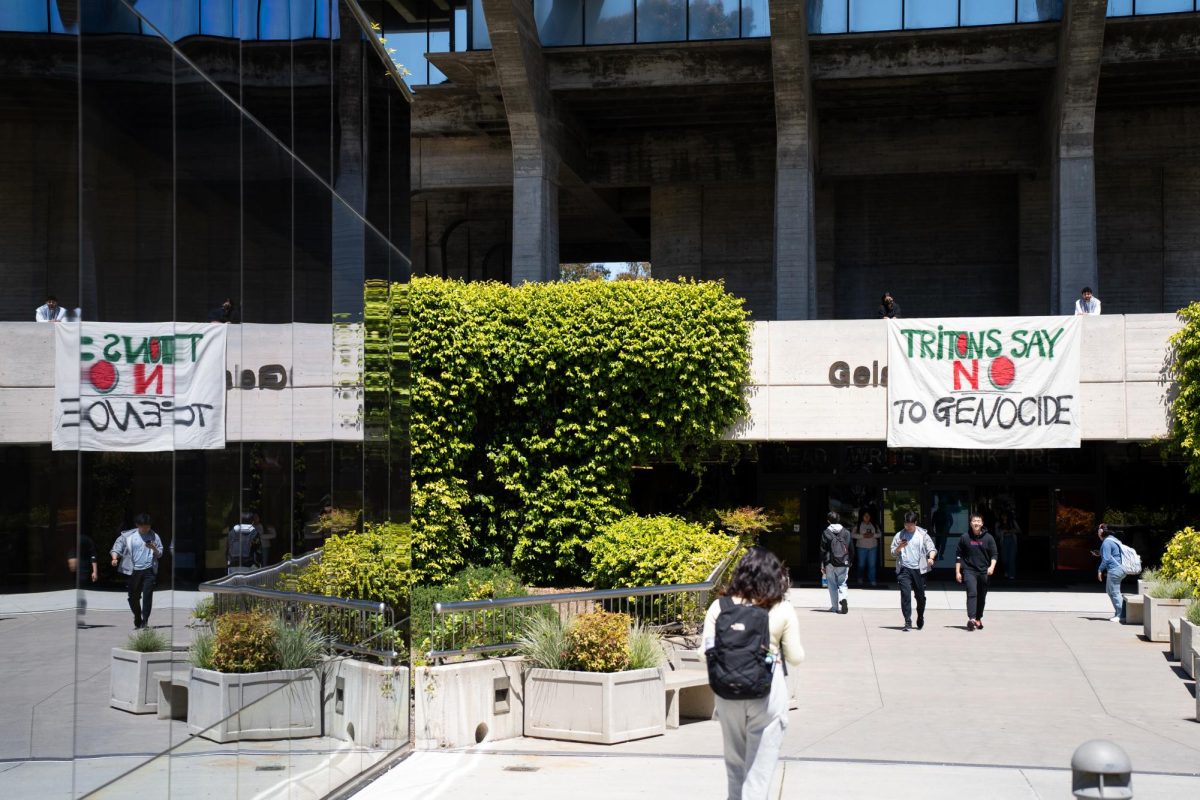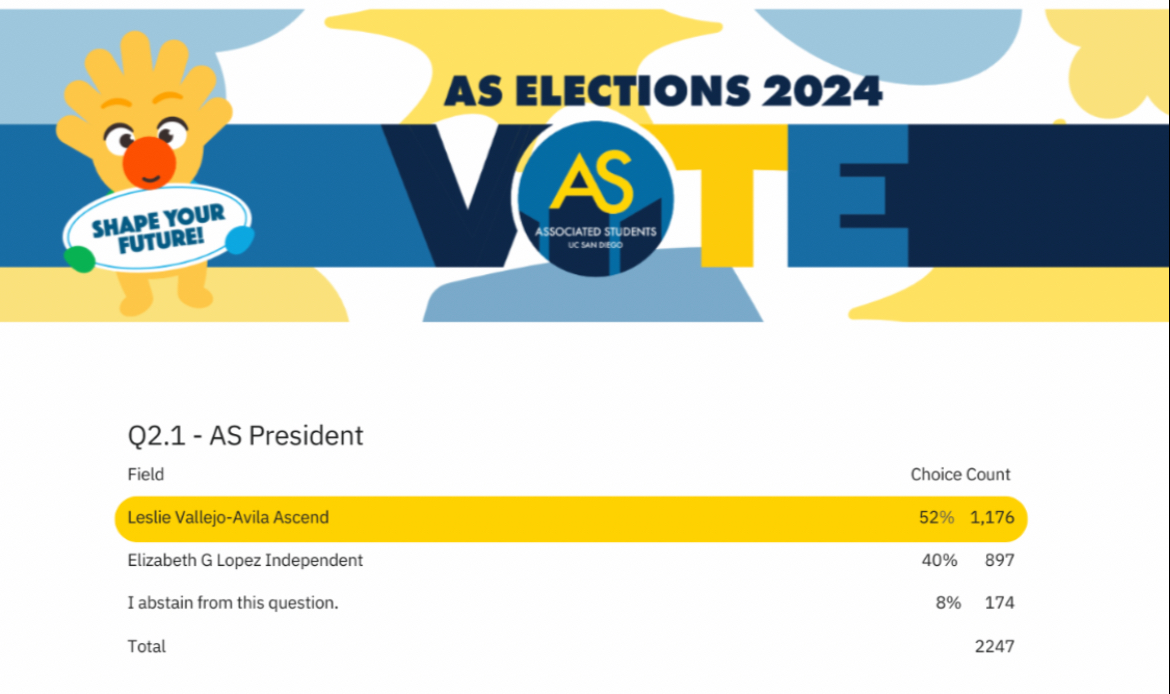
Students from 50 states and 90 countries congregated on campus for the Clinton Global Initiative University this weekend, held April 1 to 3. The conference is devoted to developing and implementing projects (called “commitments”) to global issues, such as poverty, pollution, LGBT rights and college affordability.
About 1,200 students entered the conference with individual commitments, 200 of which were from UCSD. Students were required to apply to be participate.
The Clinton Global Initiative is part of the Clinton Foundation, founded by former U.S. president Bill Clinton in 2005. Now hosting its fourth conference, the CGIU has been to universities in New Orleans, Texas and Miami.
Clinton was on hand for the weekend’s event, and other guests included Qualcomm CEO Paul Jacobs, actor Sean Penn and singer Mandy Moore. Jacobs participated in the opening session, while Moore spoke at the first workshop on global health and Penn appeared at the closing session. Students were also able to attend a variety of panels and workshops to prepare them to fulfill their commitment to face issues such as population growth, the environment and global health.
“You believe you can make a difference, and we’re going to help you,” Clinton said at the April 1 opening session. “The most important question is ‘how do you propose to do it [commitment]’ and college students are more prone for that question.”

CGI U Campus Representative Melissa Etehad, who attended CGI U in Miami last year, expressed her excitement over the event’s international scope.
“It’s an international event for UCSD, and imagine 200 students changing the world,” Etehad said. “I am so excited for the event, and all the people you get to talk to about their commitments.”
Several students, including Etehad, said that networking and meeting other forward-thinking students was a large portion of the experience.
“You will get more out of talking to each other than anything else you do,” Clinton said.
This is the first time that CGI U has been on the West Coast. UCSD was selected over other schools, including UC Berkeley and UCLA. The initiative chooses host campuses based on schools that they feel most display the goals of the conference.
Clinton said that his reasons for selecting UCSD included its strong track record for community service and research in science; he cited the Washington Monthly’s ranking of UCSD as no. 1 in government research expenditures.
He also added that UCSD’s proximity to Mexico would help bring to light issues such as immigration and drug cartels.
The weekend started with an opening session including President Clinton, Chancellor Marye Anne Fox and Jacobs, with a panel including YouTube co-founder Chad Hurley and Shirley Ann Jackson, former chairman of the U.S. Nuclear Regulatory Committee and current president of Rensselaer Polytechnic Institute.
The 1,200 CGI U delegates were joined at the opening plenary session by 2,500 UCSD students and faculty.
The CGI U has reached over 3,000 commitments since its inception, including ideas that allow people to easily sponsor students in destitute countries, talk with students in the Middle East and help AIDS patients receive the proper dosage of medication. All these ideas were developed by delegates at this year’s conference.
“Students have done remarkable things,” Clinton said. “They have amazing ideas. What we lack in money, we make up for in ideas and energy.”
Warren College senior Maclen Zilber had his commitment mentioned by Clinton. Zilber wants UCSD to increase its use of the American Opportunity Tax Credit this coming year. The tax credit, extended by Congress last year, allows students to deduct the cost of tuition, books and other expenditures from tax reports.
During the conference, the initiative held an online bracket of commitments, where people could vote for the ideas they deemed the best.
Out of the 16 commitments initially chosen, the winning idea was a project called “The School Fund” — developed by two students from Brown University who wanted to provide money to impoverished children in the developing world to help them afford a basic education.
Clinton also focused on the issue of college affordability — the theme of Zilber’s commitment — especially in light of the dramatically decreased number of graduates in the U.S.
“Higher education is the key for us being successful,” Clinton said, “The decrease in graduates is a major problem with the cost of higher education. [Maclen] recognizes something that a lot of people don’t [the tax credit.”
Zilber reflected on his experience at the conference.
“It was an honor and a privilege [to attend the conference], and a surreal experience,” Zilber said. “Spending time among hundreds of the most dedicated and impressive young leaders that you will ever see together in one room inspired me and honestly changed the way I approach problems.”
Nuseir Yassin, a Harvard student with a commitment involving micro-finance, echoed the statements of other delegates.
“CGI U was a great inspirational experience as well as a helpful networking opportunity,” Yassin said. “The conference itself was a stepping stone for us to achieve our commitment. As for UCSD and San Diego, I think the place is breathtaking, especially for a student living in Cambridge. UCSD students were also very helpful and friendly.”
Clinton added that people needed to decentralize the provision of energy as well as change current transportation methods to help combat global warming.
In terms of costs, the Clinton Foundation foots most of the bill, with UCSD providing resources such as volunteers and buses.







